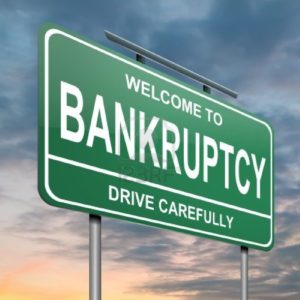 Today’s top story: Mortgage Outlook: A pre-election pause for October rates? Also in the news: A new episode of the SmartMoney podcast on the unequal employment recover and the case for used cars, many avoid bankruptcy out of fear, and how to opt out of pre-screened credit offers.
Today’s top story: Mortgage Outlook: A pre-election pause for October rates? Also in the news: A new episode of the SmartMoney podcast on the unequal employment recover and the case for used cars, many avoid bankruptcy out of fear, and how to opt out of pre-screened credit offers.
Mortgage Outlook: A Pre-Election Pause for October Rates?
Rates are standing still.
Smart Money Podcast: Unequal Employment Recovery, and the Case for Used Cars
Used cars are a no-brainer if you’re trying to save money.
Many avoid bankruptcy out of fear
People often wait too long to file, draining retirement accounts or other assets that would be protected
How to Opt Out of Pre-Screened Credit Offers
Reducing your junk mail.
 Today’s top story: How to pay for a home remodel without tapping your equity. Also in the news: U.S. unemployment shrinks, but recovery varies across race, sex, and age, how to avoid last-minute tax surprises when closing your business, and is COVID-specific travel insurance worth buying.
Today’s top story: How to pay for a home remodel without tapping your equity. Also in the news: U.S. unemployment shrinks, but recovery varies across race, sex, and age, how to avoid last-minute tax surprises when closing your business, and is COVID-specific travel insurance worth buying.  Today’s top story: What to do when your $600 weekly unemployment check expires. Also in the news: Which hotels have handled COVID-19 the best, how COVID-19 is changing the way families save for college costs, and the U.S. Mint asks for help getting coins back in circulation.
Today’s top story: What to do when your $600 weekly unemployment check expires. Also in the news: Which hotels have handled COVID-19 the best, how COVID-19 is changing the way families save for college costs, and the U.S. Mint asks for help getting coins back in circulation. Today’s top story: How to tell if that ‘contact tracer’ is really a scammer. Also in the news: Don’t wait to refinance these student loans, why you should aim for 1% credit utilization, and the $600 unemployment boost is likely ending. Here’s how you can access cash now.
Today’s top story: How to tell if that ‘contact tracer’ is really a scammer. Also in the news: Don’t wait to refinance these student loans, why you should aim for 1% credit utilization, and the $600 unemployment boost is likely ending. Here’s how you can access cash now.  Today’s top story: What to do if your kid’s emergency fund is you? Also in the news: Frequently asked questions about Coronavirus unemployment, how 3D home tours are allowing buyers to keep their distance, and why you should make a COVID-19 backup plan before returning to your office.
Today’s top story: What to do if your kid’s emergency fund is you? Also in the news: Frequently asked questions about Coronavirus unemployment, how 3D home tours are allowing buyers to keep their distance, and why you should make a COVID-19 backup plan before returning to your office.